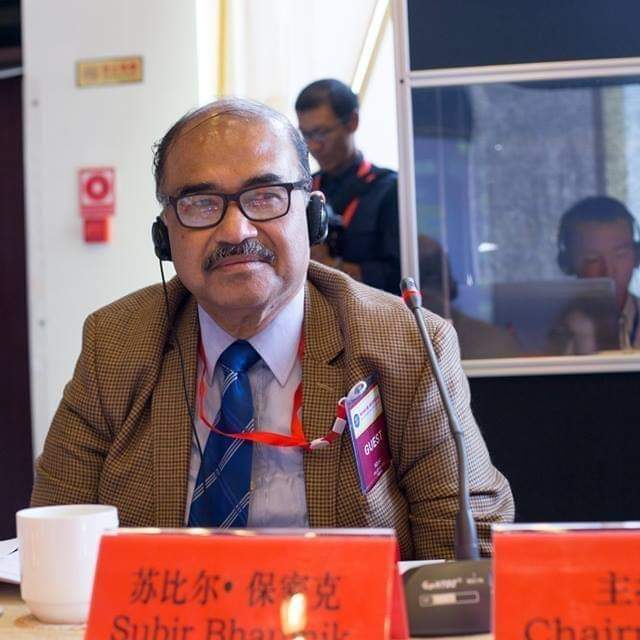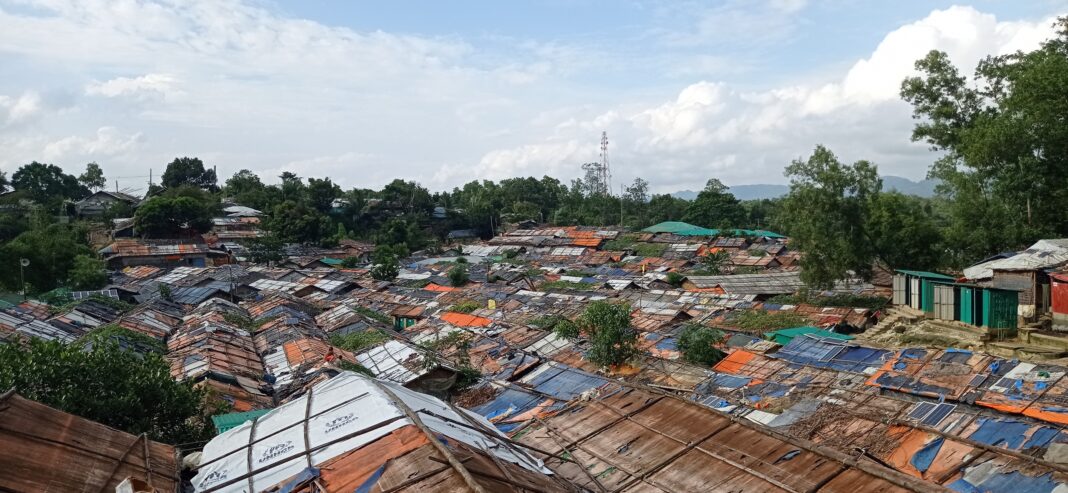BANGLADESH. Cox Bazaar. Subir Bhaumik has been the BBC News East India correspondent for almost 14 years. This Indian journalist and analyst was a fellow at Oxford University. Recently, Indian Foreign Secretary Harsh Vardhan Sringla and Army Chief MM Naravane visited Myanmar. Subir Bhaumik spoke to Transcontinental Times about the importance of Rohingya repatriation.

TCT: Will the visit of the army chief and foreign secretary of India to Myanmar play an important role in resolving the Rohingya issue?
Subir Bhaumik: In India, some terrorist groups in the northeast have carried out militant attacks in Saigon province. They accelerate some separate activities. India is worried about it. On the other hand, Myanmar is concerned about the activities of the Arakan Army in Rakhine State and their relationship with the Rohingya rebel group. As a result, a deadly field of military cooperation has been created here. That is why not only the foreign secretary but also the army chief went with him.
Myanmar’s relationship with India is not just a political one. It has become a huge military component as a result of military supplies. India has increased military supplies to Myanmar. The Myanmar army will take action against these militants in Mizoram, Naga, and Manipuri. The Indian Army will launch an operation against the Arakan Army base in southern Mizoram. There were also rumors that the first test of India’s armed drones imported from the US would be in the region.
Lately, the Arakan Army has made more casual safaris. Myanmar is getting the cooperation of Indian intelligence agencies because Myanmar is not so developed in satellite technical intelligence. Saigon is the last foreign base of militants in northeastern India. The militants were in Bhutan, but Bhutan killed them through their military operation. What was in Bangladesh, Sheikh Hasina arrested and raided after coming to power.
Again, where the Burmese army does not have much control, the border is the last border in the northeast. This place is very important for India. In doing so, the visit is aimed at defeating the Arakan Army as well as the separatists in the northeast; advancing bilateral coordination.
Twenty-two large-scale militant leaders from the northeast were arrested in Burma and flown back to India. The military dimension is clear here. One of the main reasons for India’s engagement with Burma is the security of India’s northeast. The same applies to Bangladesh.
After Bangladesh and Bhutan, Burma has also established military ties with India. As a result, militant movements in the northeast are becoming increasingly. In many cases, they are forced to sit at the table. Sitting at the table with India is the end of the movement.
TCT: Are India-Myanmar relations being strengthened to increase security in the northeast of India and stop terrorist activities of the Arakan Army?
Subir Bhaumik: India’s most important trans-border project in the region. Bangladesh has been always a route, but India sees it as another route. India’s relations with Bangladesh are always warm, sometimes tense.
But when Begum Zia was in government, they did not agree to give route and they used to support various terrorist activities. The multi-model project here is very important, as it is the second route from northeast to Madhya Pradesh.
The Arakan Army is a problem for the Burmese government. One of the mistakes of the Arakan Army is that they consider the Myanmar government their enemy, so there are some logical reasons why they are carrying out militant attacks.
The Myanmar military is discriminating and torturing minorities, but it is certainly not wise for the Arakan Army to make India an enemy.
TCT: India has promised to assist Bangladesh in repatriating Rohingya. In this case, how much influence will India be able to exert on Myanmar?
Subir Bhaumik: So far, Bangladesh has repeatedly asked India to take an active role in the Rohingya issue. Two years ago, India did not have the opportunity to wield that influence. That was China. China has not solved this problem, nor will it. China will play with everyone. China sells arms to the Burmese Army on the one hand and to the Arakan Army on the other. This is China’s business advantage.
Today, the Myanmar government attaches great importance to India. When I was there, Foreign Secretary Chill S. Jayashankar went himself and made the agreement. The UN started saying that it would not be safe to go back there because their shops will be closed. When the return starts, the shops of various NGOs will be closed. India itself made the deal under pressure, I was there.
Now that India has more influence, India can say you repatriate for stability. If you do not bring back the Rohingyas and bring peace to this place, then the movement of Rakhine along with Rohingyas will also increase. You will not be able to control this movement. You (Myanmar) have to engage India in this, engage the common people, engage the Rohingya political leaders.
Today, India is in a position to talk about this. Two years ago, China’s influence was too great. Now that an anti-China environment has been created in Myanmar, the chances of Rohingya returning are very bright. However, it is time-consuming. If India has assured Bangladesh that we can do it now, then it is not wrong. China will not solve this problem in any way.
TCT: How true is the propaganda about Rohingyas in various media?
Subir Bhaumik: A very small part of the Rohingya. There are about two lakh people in Pakistan. Where does the rebel organization grow? Where ordinary people are oppressed. They have already capitalized on it. I personally know many of the organizations that emerged earlier. Two of them were Islamic, fueled by Saudi Arabia and Pakistan. That means they are the Arakan Rohingya Islamic Forum. Another was the Arakan Rohingya Nationalist Organization. They thought that Arakan Muslims and Arakan Rakhine were being persecuted together. Arakan was once an independent province. Muslim and Rakhine will live side by side as they make it independent again.
Arakan Rohingya Salvation Army (ARSA) had basically two purposes. Creating tension at the border and creating chaos among the Rohingyas, putting the Sheikh Hasina government in trouble.
Pakistan does not want the Sheikh Hasina government. It is not true that there is a militancy among the Rohingyas in the camp. Some exported Rohingyas are carrying out artificial terrorist activities here. They have some international support. The way the Myanmar Army has tortured the Rohingyas and raped the women, it is very natural that the Rohingyas will be angry.
TCT: Why did Suu Kyi serve as the Myanmar representative in the Hague if she really has no role in the Rohingya crisis?
Subir Bhaumik: Suu Kyi told me, “I am an icon of democracy all over the world. Yes I know it, but I am a Burmese politician. I have to survive here.” It is not possible for Suu Kyi to go against the army and survive. If she opposes, the army will overthrow the civil government and overthrow democracy. However, the role she has played defending the army on the Rohingya issue is disgusting. The army has been in power in Burma for 50 years.
Also read: Tensions Escalate In Rakhine On Border Of Bangladesh And Myanmar



